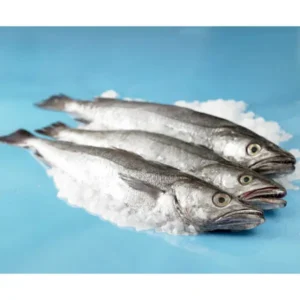Mackerel is a saltwater fish, highly prized for its flesh. It belongs to the same family as the tuna. It is rich in Vitamins B complex and Vitamin D. It also provides several minerals such as selenium, iron and iodine. Of course, this fish is a great source of omega-3 fatty acids.
Mackerel is a fish that has no scales and very few bones, in addition to being very affordable compared to other fish. This is one of the reasons that makes it so popular in braised fish snacks all over Africa.
Mackerel is an excellent source of long chain omega-3 fatty acids (EPA and DHA). These are the most beneficial for the body. They are known to reduce blood pressure, triglycerides and the formation of blood clots, thereby reducing the risk of cardiovascular disease. Mackerel rates as one of the richest fish in EPA and DHA. A 100 g serving of mackerel provides about 1.2 grams of Omaga-3 fats, twice the daily recommendation.
These fatty acids act as the first chemical messengers. They promote good immune, circulatory and hormonal functioning. Several epidemiological and clinical studies have shown that the consumption of omega-3 fatty acids (mainly from fatty fish) exerts favorable effects on cardiovascular health and reduces mortality from cardiovascular disease. These fatty acids are known to act on several planes in the body. They reduce blood pressure, blood triglycerides and the formation of blood clots. Therefore, they help thus reduce the risks of atherosclerosis.
- It is an inexpensive fish that can be prepared in a thousand and one ways.
- Its fatty flesh goes well with an oven-simmered broth of black tea and vinegar.
- Wrapped in vine leaves with feta, the smoked mackerel is an original appetizer.
- It is one of the richest fish in Omega-3, whose beneficial effects are recognized.
- Very nutritious, it provides good amounts of B complex and D vitamins, as well as several minerals such as selenium, iron and iodine.




